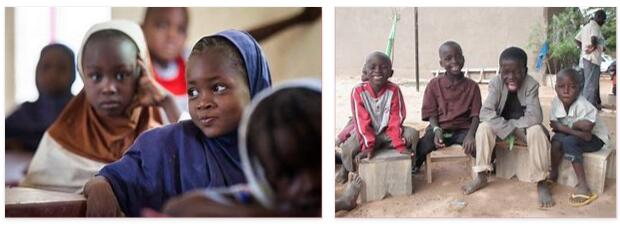Yearbook 2016
Niger. The current population of Niger is 24,206,655. The country was plagued by the ravages of Boko Haram’s ravages in the border area against Nigeria. The movement affiliated with the Islamic State (IS) aims to create an Islamic state in the region.

In May, at least six people were killed and several injured in attacks on a village, where several houses and a marketplace ignited. In July, at least 32 soldiers were killed and close to 70 injured when hundreds of Boko Haram supporters attacked a military base in the city of Bosso. According to the UNHCR, some 50,000 people were forced to flee their homes because of the attacks against Bosso.
In July, Niger’s military, in collaboration with neighboring countries’ forces, launched a counter-offensive against Boko Haram in the southeast. According to personal data in September, 123 terrorists had been killed, seized weapons and ammunition and taken back important areas ruled by Boko Haram. Fourteen Nigerian soldiers were reported to have been killed in the fighting.
In September, five people were killed in a village attacked by Boko Haram supporters, who came riding on camels and burned down residential buildings.
According to thereligionfaqs, Boko Haram’s advance in Niger, Nigeria, Chad and Cameroon has led to over 6 million people in the Chad Lake area being threatened by starvation, according to several relief organizations in the area.
UNICEF noted that many children could not attend school because of the terror. With the UN’s help, the government moved hundreds of schools from the conflict area on the border to Nigeria.
In February, parliamentary elections and a first round of the presidential elections were held, with greatly increased security of terrorist acts. President Mahamadou Issoufou was challenged by 14 candidates, where former Prime Minister Hama Amadou was most knowledgeable. However, Hama Amadou was forced to run his campaign from the detention, accused of participating in a tangle with child trafficking.
Mahamadou Issoufou was accused by his opponents of wanting to silence critics, including by arresting many of them for alleged coup attempts. After the first round of elections, Mahamadou Issoufou and opposition candidate Hama Amadou would have met in a second round, but the latter was taken out of custody and flown to Paris for alleged chronic illness.
The opposition decided to boycott the second round of the election. According to the official results, 56% of the voters participated, and the incumbent president won by more than 92% of the votes. According to the opposition, only about a tenth of the electorate participated.
In the parliamentary elections, the ruling Nigerian Party for Democracy and Socialism (PNDS) received 75 seats and the entire government coalition totaled 90, which gave a majority. The largest opposition party The Movement for a Democratic Niger (Moden) received 25 seats. A new government was formed with 40 ministers from PNDS. After the election, a court decided that Hama Amadou should be released against the bail.
In June, 34 dead people were found in the desert of Niger after they succumbed in an attempt to reach neighboring Algeria, probably with Europe as their target. Of the dead, 20 were children.
In August and September, western and northern Niger were hit by storms, where floods, according to the UN, took the lives of 38 people and more than 90,000 became homeless. Livestock succumbed and large fields were destroyed.
The government banned exports and slaughter of donkeys due to a dramatically growing demand from donkey hides from China, whose gelatin is used, among other things, as potency enhancers. The rush for donkey hides had pushed up the price of a donkey three, four times, causing many farmers to abandon the rearing of other animals.
In September, seven politicians were released from the opposition who have been detained since the previous year.
In November, at least 18 people were killed and about twenty were injured in violence between farmers and livestock herdsmen in southern Niger. Land and water conflicts are common in the area.